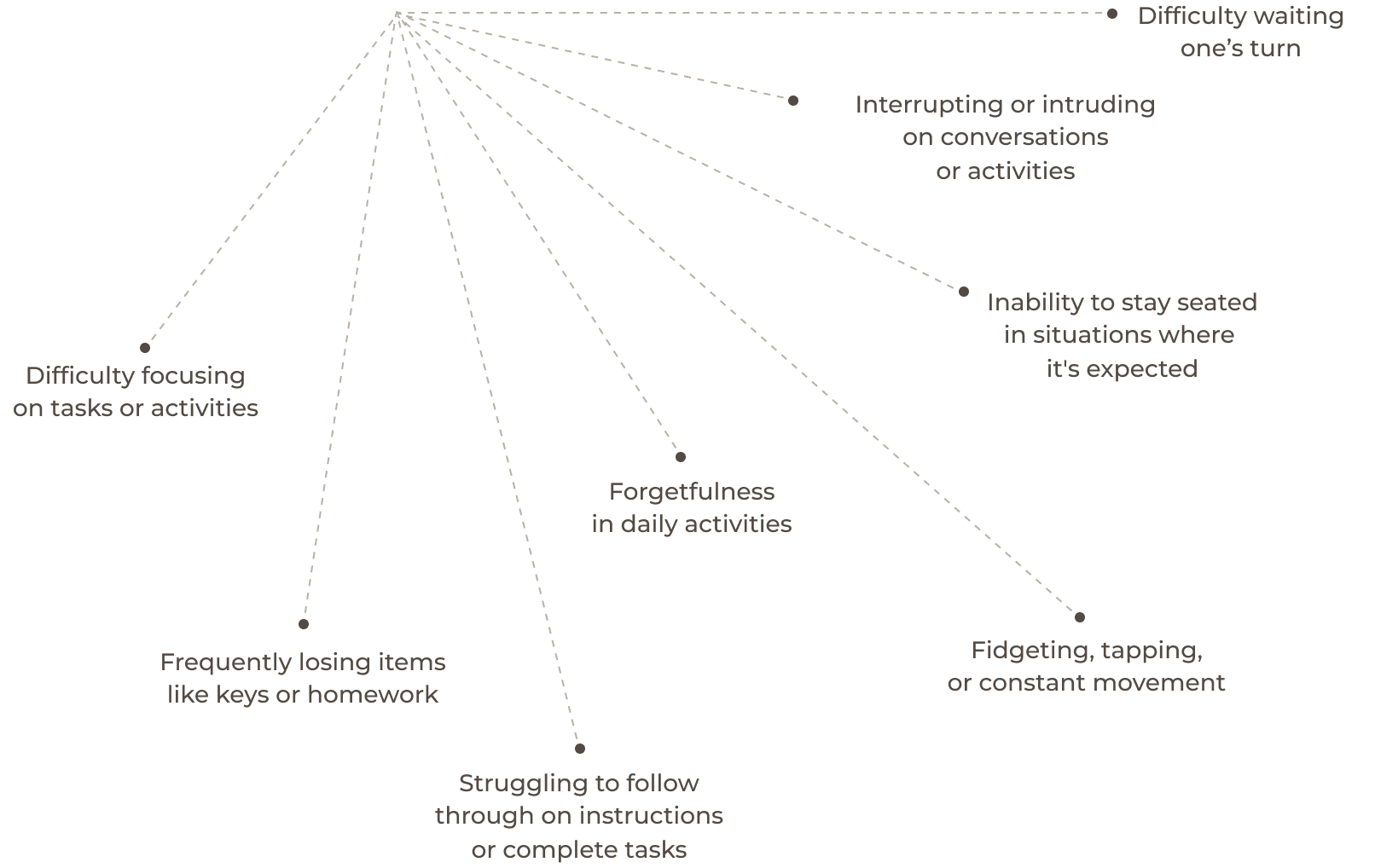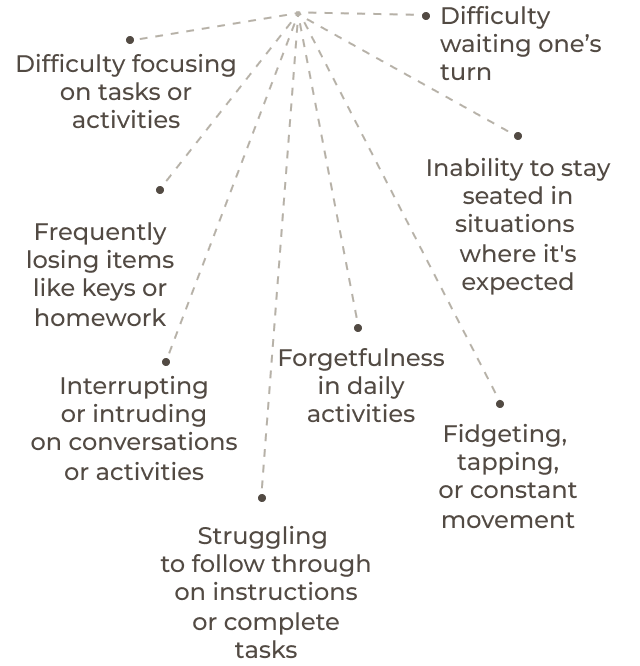ADHD

Attention-Deficit/Hyperactivity Disorder (ADHD) is a neurodevelopmental disorder that affects both children and adults, characterized by persistent patterns of inattention, hyperactivity, and impulsivity. These symptoms can significantly disrupt daily functioning in areas such as school, work, and personal relationships. ADHD is generally categorized into three types:
Inattentive Type: Predominantly characterized by inattention without significant hyperactive or impulsive symptoms. This type may often go unrecognized, especially in girls, who may be less disruptive and more prone to daydreaming.
Hyperactive-Impulsive Type: Marked by hyperactive and impulsive behaviors with less emphasis on inattention. Individuals may struggle to remain still, often moving around or acting without regard for social norms.
Combined Type: Features a mix of both inattentive and hyperactive-impulsive symptoms. This is the most common presentation and can lead to a wide range of challenges in various settings.

Symptoms
of ADHD



How We Can Help with ADHD

During this evaluation, we gather detailed information about your medical history, developmental background, and specific symptoms. Through a collaborative discussion, we assess how ADHD affects your daily life, including challenges related to attention, impulsivity, and organization. This thorough evaluation not only aids in accurately diagnosing ADHD but also helps identify any co-occurring conditions that may need to be addressed. Based on the findings, we develop a tailored treatment plan that may include therapy, medication options, and lifestyle recommendations, ensuring that the approach aligns with your unique needs and goals for managing ADHD effectively.
Medication management for ADHD is a tailored service designed to optimize treatment outcomes by carefully monitoring and adjusting medication to meet individual needs. This process begins with a comprehensive evaluation to determine the most effective medications, which may include stimulants like Adderall and Ritalin, as well as non-stimulant options. Through ongoing assessments, we monitor your response to medication, making adjustments as necessary to maximize benefits while minimizing side effects. The goal is to enhance focus, reduce impulsivity, and improve overall functioning in daily life. By providing personalized support and education about your treatment options, medication management empowers you to take an active role in your ADHD care.
Psychotherapy for ADHD is a valuable service designed to help individuals understand and manage the unique challenges associated with the disorder. Through collaborative discussions, we explore the impact of ADHD on daily life, including issues related to attention, impulsivity, and organization. The therapeutic process focuses on developing effective coping strategies, improving time management skills, and enhancing self-regulation. By addressing negative thought patterns and fostering self-awareness, psychotherapy can empower individuals with ADHD to navigate their personal and professional lives more successfully. Ultimately, the goal is to equip you with the tools needed to thrive while promoting overall mental well-being.
Laboratory monitoring and psychotropic genetic testing for ADHD are innovative services aimed at optimizing treatment and enhancing individual care. Laboratory monitoring involves regular assessments of health markers, such as liver function and electrolyte levels, to ensure the safe and effective use of medications, particularly stimulants. This ongoing oversight helps identify any potential side effects early on and allows for timely adjustments to the treatment plan. Psychotropic genetic testing, on the other hand, analyzes how your genetic makeup may influence your response to certain medications. By understanding your genetic predispositions, we can tailor medication choices more precisely, improving efficacy and minimizing adverse effects.
Let’s Connect!

